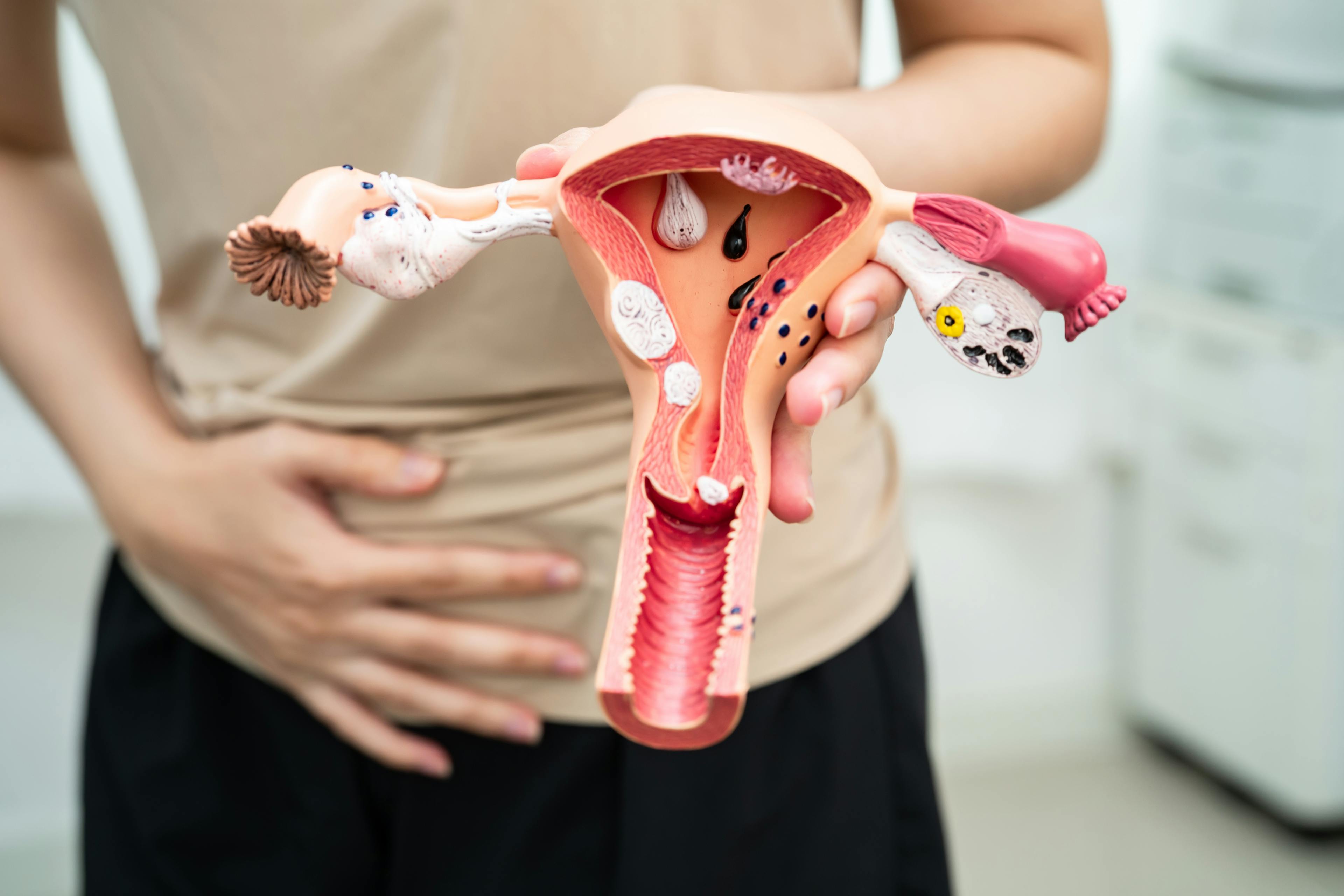Myth 1: Perimenopause Only Affects Women in Their Late 40s/50s.
FALSE: While it's most common in a woman’s late 40s, perimenopause can actually begin much earlier. Many women start experiencing symptoms in their late 30s. The timeline is unique for everyone, which is why it's so important to listen to your body and not dismiss symptoms based on your age.
Our team of Medical Practitioners explain that the hormonal changes of perimenopause don't follow a strict calendar. The ovaries gradually begin to produce less estrogen, and this process can start at different ages for different women.
This can lead to subtle but noticeable changes, like changes in your menstrual cycle or sleep patterns, long before you expect it. Because the symptoms can be so varied, they are often misdiagnosed as stress, anxiety, or simply a normal part of aging.
Myth 2: Perimenopause is the Same as Menopause.
FALSE: This is a common point of confusion. The two terms are not interchangeable. Perimenopause is the transitional phase leading up to menopause, not the end point itself.
Our team of medical practitioners explain that menopause is a specific moment in time: the one-year anniversary of your final menstrual period. Perimenopause, on the other hand, is the journey that gets you there. This journey can last anywhere from two to ten years. During this time, your periods can become irregular longer, shorter, lighter, or heavier until they stop altogether.

Myth 3: Your Sex Life is Over After Perimenopause Starts.
FALSE: This is a damaging myth that couldn't be further from the truth. While perimenopause can certainly bring about changes that affect intimacy, it doesn't mean it’s the end of your sex life. In fact, for many women, it's a new opportunity to explore and redefine what pleasure means to them.
Our team of medical practitioners explain that the changes you may experience, such as a decrease in libido or vaginal dryness, are primarily caused by hormonal shifts. However, these issues are highly treatable.
They suggest that communication with your partner is key, along with a visit to your doctor. Solutions can include everything from vaginal moisturisers and lubricants to hormonal treatments or other therapies to address low libido.
It's also an excellent time to focus on non-penetrative forms of intimacy and to communicate openly about what feels good. Perimenopause can be a new chapter, not an ending, for your sexual health and connection.
Myth 4: Perimenopause is Just Hot Flashes and Night Sweats.
FALSE: While hot flashes and night sweats are hallmark symptoms, they are just the tip of the iceberg. Perimenopause can cause a wide range of physical and emotional changes that often go unrecognised.
According to our team of medical practitioners, perimenopause is a complex phase driven by fluctuating hormones, primarily estrogen. These fluctuations can affect the brain and nervous system, leading to a surprising array of symptoms.
Beyond the well-known hot flashes, many women experience mood swings, increased anxiety or irritability, brain fog, fatigue, joint and muscle pain, headaches, and changes in libido. Understanding this full spectrum of symptoms is the first step toward finding relief.
Myth 5: Hormone Replacement Therapy (HRT) is Dangerous and Should Be Avoided.
BUSTED: This myth stems from an outdated study that created widespread fear about HRT. Today, we have a much more complete and nuanced understanding of its risks and benefits. For many women, HRT is a safe and highly effective treatment option.
Our team of medical practitioners clarify that for most healthy women who are within 10 years of their last menstrual period or under the age of 60, the benefits of HRT often outweigh the risks.
HRT is the most effective treatment for hot flashes and night sweats and can also help with other symptoms like mood changes and vaginal dryness. It has also been shown to help protect against bone loss and reduce the risk of fractures. The key is to have a discussion with your doctor to evaluate your individual health history and determine the right approach for you.

Myth 6: You Can't Get Pregnant During Perimenopause.
FALSE: While your fertility is declining, it is not gone completely. Perimenopause is a time of unpredictable ovulation, which means a surprise pregnancy is still possible.
Our team of medical practitioners stress that your ovaries can still release an egg, even if your periods are irregular. This makes it a tricky time to rely on a "natural" method of birth control. If you do not wish to become pregnant, it is crucial to continue using contraception until you have officially reached menopause (defined as 12 consecutive months without a period).
In fact if you go through menopause under the age of 50 years, contraception is advised for 2 years after this, and if menopause occurs after the age of 50, then you would still need contraception for another 1 year.
Myth 7: Perimenopause is a "Second Puberty" Where You Go Wild.
FALSE: While perimenopause can bring about intense mood swings and emotional changes, it's not a return to teenage rebellion. This "second puberty" myth is often used to dismiss a woman's valid experiences, suggesting she's being irrational or immature when, in reality, her body is undergoing significant hormonal shifts.
Our team of medical practitioners explain that the "wild" mood swings are not a choice or a personality flaw. They are a direct result of fluctuating estrogen and progesterone levels. These hormones play a huge role in regulating mood, so as their levels rise and fall erratically, it can lead to anxiety, irritability, and even feelings of rage or sadness that can feel completely out of character.
Understanding the biological root of these feelings is the first step toward managing them and getting the support you need.

Myth 8: A Blood Test Can Tell You Exactly When You're in Perimenopause.
FALSE: While doctors can check hormone levels with a blood test, they can't definitively diagnose perimenopause this way. Hormone levels fluctuate so wildly and unpredictably during this time that a single blood test only provides a snapshot of what’s happening at that specific moment. A test taken in the morning might show one thing, and a test taken in the afternoon might show something else entirely.
Our team of medical practitioners explain that the diagnosis of perimenopause is primarily a clinical one, based on your age and symptoms. A doctor will typically ask about your menstrual cycle regularity, how you're feeling, and your overall health history. Blood tests can be useful for ruling out other conditions, like thyroid problems, but they aren’t the most relatable way for confirming perimenopause.
Listening to your body and communicating with your doctor is far more effective than relying on a number from a lab test. That said, blood tests are only useful to confirm menopause and are most helpful a year after your last period.
Myth 9: You Will Inevitably Gain Weight During Perimenopause, No Matter What You Do.
FALSE: While many women do experience weight gain during this time, it's not a predetermined fate. It's often not just about what you're eating, but how your body is changing. Understanding these changes is the key to managing your weight.
Our team of medical practitioners explain that hormonal fluctuations, particularly the drop in estrogen, can lead to a shift in where fat is stored, often moving from the hips and thighs to the belly. This isn't just about calories; it's about metabolism. Perimenopause can also cause a loss of muscle mass, which further slows down your metabolism and makes it easier to gain weight. However, this doesn't mean you're powerless.
The right approach involves a combination of strength training to build muscle, dietary adjustments to support a slower metabolism, and managing stress and sleep, which all play a role in weight regulation.

Myth 10: Perimenopause is the Beginning of the End.
FALSE: This is perhaps the most negative and damaging myth of all. Perimenopause is often framed as a time of decline, a loss of youth, vitality, and even femininity. In reality, it is a natural and necessary biological transition that marks a new, powerful chapter in a woman's life.
Our team of medical practitioners believe that perimenopause can be an empowering time. It's an opportunity to re-evaluate your health, prioritise self-care, and advocate for your needs. While the changes can be challenging, managing your symptoms allows you to embrace this next stage with confidence.
You are not "old," you are not "failing," and your health journey is just getting started on a new path. It’s a time to focus on what you can gain from this transition, increased wisdom, strength, and a deeper understanding of your body, not what you lose.
Note: If you are experiencing severe or persistent symptoms, we always recommend consulting with your Doctor for personalised medical advice.

We hope this information has provided you with clarity and understanding. This transition is a natural part of life, and you don’t have to go through it alone.
At Moshy, we've empowered countless Australian women to achieve their health goals through our innovative women's health platform.
Our team of healthcare professionals can provide personalised guidance, to help you lose weight taking into consideration factors such as hormonal imbalances, lifestyle, and specific health goals.
Say goodbye to waiting room anxiety and scheduling conflicts, and enjoy the freedom to change doctors if you seek a second opinion.
Let Moshy help you make informed dietary choices for your health journey. Get in touch with your Moshy health practitioner today!
